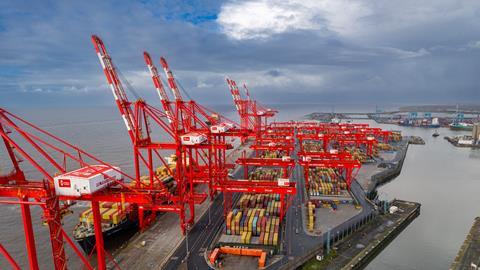Peel Ports Group has become the first port operator to join the British Retail Consortium (BRC), which it hopes will help strengthen its relationships with retailers.
The Liverpool and London Medway port operator joined the group as an associate member and said it would use its membership to communicate directly and engage with beneficial cargo owners (BCOs).
Peel Ports said it would host webinars for BRC members to offer insights into the role ports play to improve supply chain efficiencies and support decarbonisation efforts.
A recent survey of 2,000 retail businesses by the operator found 77% counted cutting carbon emissions as one of their top priorities and 46% were looking to source manufacturers closer to home to boost sustainability.
The majority (79%) believed better transportation of goods via sea into the UK was required to reduce delays, congestion and emissions in the supply chain.
David Huck, Peel Ports Group COO said: “Our partnership with BRC will play a supporting role in facilitating our plans to work closely with BCOs and shipping lines, to help make ambitious but informed changes to the UK’s cargo flows.
“Currently, 90% of deep-sea containerised cargo comes into the southern UK ports of Felixstowe, London and Southampton, yet 60% of these goods are destined for the North. This makes no sense to UK plc from either an efficiency or a sustainability perspective.
“We’re serious about our commitment to deliver more effective sea transport and shipping routes, which we believe offer vast improvements for the retail sector. We’re confident our Northern ports hold the key to reducing costs, carbon and congestion - a triple win for the entire supply chain.”
Andrew Opie, director of food and sustainability at the BRC, said: “The retail sector has made a commitment to net zero by 2040, ten years ahead of the government target, and transport offers a significant opportunity to reduce supply chain carbon emissions.
“Maritime shipping is used widely by retailers and they are looking for progress in carbon efficiency from both the shipping lines and the port operators.”












![GreenockCranes[81533]](https://d2cohhpa0jt4tw.cloudfront.net/Pictures/100x67/7/5/1/19751_greenockcranes81533_114997.jpg)
![bg green[74096]](https://d2cohhpa0jt4tw.cloudfront.net/Pictures/100x67/8/8/6/17886_bggreen74096_865108.jpg)



